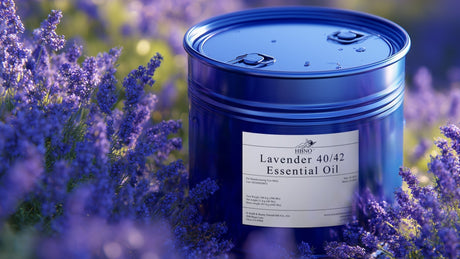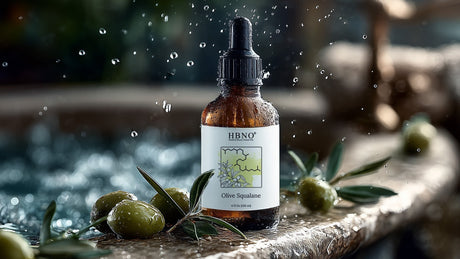In the ever-evolving world of skincare, natural ingredients have earned their spotlight for offering potent benefits with minimal side effects. One standout is rosehip seed carrier oil, a powerhouse botanical renowned for its rejuvenating properties, particularly when used in night serums.
Derived from the seeds of wild rose bushes, rosehip seed oil is rich in essential fatty acids and antioxidants .This guide explores the benefits of rosehip seed oil for night serums, helping you understand how it can become a transformative part of your nighttime skincare ritual.
Rosehip Oil Benefits for Night Serums
1. Hydrates and Locks in Moisture
One of the most notable rosehip seed oil benefits may be its ability to deeply hydrate the skin. Rich in essential fatty acids, especially linoleic and linolenic acids, the oil reinforces the skin's natural barrier, locking in moisture overnight when the skin is most receptive to repair.
2. Fades Scars and Hyperpigmentation
Rosehip oil contains natural retinoids-compounds derived from vitamin A-that may help improve cell turnover. These properties may make it particularly effective for reducing the appearance of scars, sun spots, and uneven pigmentation when applied consistently as part of a night serum.
3. Reduces Fine Lines and Wrinkles
Vitamin A, along with Vitamin C Night Serum, may help stimulate collagen production and smooth fine lines. Antioxidants in rosehip essential oil also neutralize free radicals, reducing signs of premature aging and leaving skin firmer and more youthful-looking. Rosehip oil is one of the best essential oils for anti- aging.
4. Evens Skin Tone and Texture
For those dealing with blotchy or textured skin, rosehip oil works wonders. Its regenerative capabilities may lead to a more balanced and refined skin tone, and over time, it minimizes redness and rough patches for a smoother overall complexion.
5. Supports Acne-Prone Skin
Unlike heavier oils, rosehip seed oil is non-comedogenic, meaning it won't clog pores. The presence of linoleic acid may be especially helpful for those with acne-prone skin.
6. Soothes Inflammation and Redness
The anti-inflammatory properties of rosehip oil may make it ideal for irritated skin. Whether from acne, eczema, or environmental stressors, the oil may help redness and reduce inflammation as you sleep.

How to Use Rosehip Seed Oil in Your Night Routine
To fully enjoy the benefits of rosehip seed oil for night serums, it's essential to use it correctly. Here's a quick step-by-step:
-
Cleanse your skin to remove dirt, oil, and makeup.
-
Tone to balance pH and prep the skin for better absorption.
-
Apply your night serum containing rosehip seed oil by patting it gently into the skin. A few drops are enough.
-
Follow up with a moisturizer to seal in the nutrients.
You can also blend rosehip seed oil with other beneficial oils like jojoba, argan, or even essential oils like lavender essential oil to create a more customized serum.
Why Night Serums?
Nighttime is the optimal period for skin recovery. While you sleep, your skin's blood flow increases, and cells regenerate more rapidly-making your bedtime routine the perfect opportunity to introduce potent ingredients like rosehip seed oil and other essential oils for anti-aging.
Since the skin is more permeable at night, it can better absorb active ingredients without interference from UV exposure or pollutants. This is why night serums infused with rosehip oil benefits offer visible improvements in hydration, tone, and texture with consistent use.
Conclusion
Rosehip Seed Oil offers a remarkable range of skincare benefits, especially when used in night serums. From hydrating and brightening the skin to fading scars and reducing wrinkles, this botanical oil is a multitasking must-have for your nighttime routine.
Ready to revamp your skincare regimen? Shop high-quality Organic Rosehip Seed Carrier Oil and ready-to-use night serums at HBNO Bulk - your trusted supplier for premium oils and natural ingredients.
Develop your brand with a Private Label Manufacturing Experts offering custom product development and branding.



